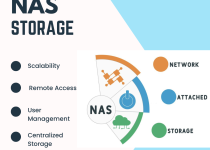Privacy-First Mobile App Development: How to Stay Compliant

Mobile applications have become a necessary component of everyday life in the digital age, being used for everything from banking and shopping to entertainment and fitness. But as we rely more and more on applications, privacy concerns are rising as well. Consumers seek reassurance on the security of their personal data. Simultaneously, the laws pertaining to data security are getting stricter. Ensuring privacy compliance is now imperative for firms developing mobile apps, particularly in the United States. It is no longer optional.
We’ll look at how to make privacy-first mobile apps, maintain compliance, and offer a smooth user experience in this article. If you’re looking for assistance, working with the top mobile app development company in USA can offer you a big advantage.
Overview: Privacy is Critical for Mobile Apps
Assume the role of a user who installs a new app to monitor your health-related data. You want to be sure that your data won’t get into the wrong hands as soon as you enter your personal information. These kinds of privacy issues are more important than ever, particularly as apps gather ever-increasing volumes of personal data. Businesses risk expensive fines, legal disputes, and reputational damage when they fail to secure user information.
Creating a mobile app that prioritizes privacy is more than just abiding by the law; it’s also about gaining and retaining user trust. After all, a business’s relationship with its clients is the foundation of its success. How can your company, then, be sure that your software complies with privacy standards? Partnering with the top mobile app development company in the USA can ensure that your app meets these privacy requirements effectively.
Why Privacy Is Important to Companies
Privacy must be given top priority by businesses of all sizes because:
- Reputation management: The reputation of your brand might be permanently harmed by a single data breach.
- Legal Compliance: Serious fines and penalties may result from violating privacy regulations.
- User Trust: Applications that show a dedication to protecting users’ privacy can cultivate enduring connections with users.
Being in compliance with privacy standards protects your organization and also makes it stand out in today’s competitive market. Who wouldn’t want an app that guarantees the security of their data, after all?
Recognizing International Privacy Laws
Knowing the many privacy laws that apply globally is essential if you want to create a mobile app that puts privacy first. International rules such as these should be taken into consideration by worldwide businesses, even if this article primarily focuses on U.S. regulations:
- California Consumer Privacy Act (CCPA) in the USA
- General Data Protection Regulation (GDPR) in the EU
- Personal Information Protection and Electronic Documents Act (PIPEDA) in Canada
It is imperative for developers to remain knowledgeable about these policies, as they frequently mandate stringent data protection procedures for enterprises.
Important US Privacy Laws Governing Mobile Apps
Two key privacy laws affecting mobile app development in the US are:
- California Consumer Privacy Act (CCPA): Mandates that companies inform users of the data they are collecting, explain how it will be used, and provide them with the option to have their data deleted.
- Children’s Online Privacy Protection Act (COPPA): Safeguards users’ privacy who are younger than 13 and mandates parental approval before collecting information about them.
Anyone looking to release a mobile app in the United States must be aware of these requirements.
How to Include a Privacy-First Approach in the Development of Apps
Design is where privacy-first thinking first appears. Developers must adhere to these crucial steps:
- Data Minimization: Only gather information that is utterly required.
- Anonymization: To prevent personal information from being linked to specific people, anonymize it whenever it is feasible.
- Explicit Privacy Guidelines: Make sure the privacy statement for your app is clear and simple to find.
In addition to safeguarding users, this strategy reduces the amount of data that might be exposed in the case of a breach.
Data Encryption’s Function in Protecting Privacy
One of the best methods for protecting data is encryption. Encryption ensures unauthorized users cannot access sensitive data, whether your app is storing user data locally or transmitting it over the internet.
- Encryption in Transit: Data is encrypted during transit from the sender’s device to the recipient’s, guaranteeing anonymity even in the event that the data is intercepted.
- Encryption at Rest: Deters hackers from using stolen data by safeguarding it.
By using these encryption methods, you may give your app’s users an extra layer of protection.
Open Data Gathering: Implications for Applications
Users are more wary of how their data is gathered and utilized than ever in the age of data breaches and privacy crises. Your app ought to:
- Indicate exactly what information is gathered and why.
- Steer clear of gathering pointless data.
- Give users authority over their data by letting them edit or remove information, for example.
Transparency about data collection promotes confidence and complies with privacy laws.
Consent and Control from Users: A Foundation for Compliance
Making sure consumers give their informed consent is one of the most important parts of developing privacy-first apps. This implies:
- Gaining unambiguous consent before gathering information.
- Allowing consumers to choose whether to share their info or not.
- Enabling users to revoke their consent at any moment.
To ensure that both the user and your app are aware of what is being traded, consider user consent as a contract.
Privacy by Design: The Viewpoint of a Developer
According to the concept of Privacy by Design (PbD), privacy must be taken into account right from the beginning of the development process rather than being an afterthought. This entails creating apps with the following privacy settings:
- By default, enabled.
- Transparent and easy to use.
- Adaptable, letting users change their privacy settings as needed.
Users view developers who use PbD as more trustworthy, in addition to being compliant.
The Value of Consistent Privacy Audits
Maintaining privacy is a continuous process. It’s an ongoing procedure that calls for:
- Audits conducted on a regular basis to verify adherence to current laws.
- Revising privacy statements as necessary.
- Checking that services provided by third parties adhere to privacy regulations.
By carrying out these audits, you can find any weaknesses in your privacy policies and fix them before they become more serious problems.
Collaborating with a Mobile Application Development Firm for Adherence
Working with the best mobile app development company in the USA can simplify the process for companies trying to ensure privacy compliance. These businesses can offer:
- Expertise handling intricate privacy requirements.
- Solutions made specifically for your company’s requirements.
- Familiarity with current privacy regulations.
- Continuous assistance to keep compliance.
When it comes to privacy, a trustworthy app development partner can help you keep on top of the game.
Case Studies: Businesses that Succeed in Developing Privacy-First Applications
A few businesses that have effectively incorporated privacy-first strategies into their mobile apps are as follows:
- Apple: Renowned for its strict encryption procedures and privacy regulations.
- Signal: An end-to-end encrypted messaging app that has become more well-known.
- DuckDuckGo: A search engine app that does not track searches and prioritizes user anonymity.
These businesses serve as examples of how putting privacy first can provide you with a competitive edge.
Upcoming Trends in Mobile App Development and Privacy
Privacy problems are evolving along with technology. Future trends for the development of mobile apps include:
- Increased application of AI to improve data security.
- Decentralized data storage lowers the possibility of breaches due to centralization.
- Enhanced biometric security using techniques like fingerprint scanning and facial recognition.
Keeping up with these trends can help your company stay competitive and compliant.
Conclusion: What’s Next for Companies
In a world where privacy is of utmost importance, companies need to approach mobile app development with initiative. Integrating privacy-first principles into your development process can help you gain your users’ trust while also adhering to legal requirements. Remember that maintaining relationships is equally as important as safeguarding data when it comes to privacy.
FAQs about Developing Mobile Apps with Privacy First
Q1. When developing a mobile app, what does privacy by design mean?
Integrating privacy elements from the outset of the development process and making privacy the default setting is known as “privacy by design.”
Q2. What is the significance of user consent in mobile apps?
Transparency and trust are promoted by user consent, which guarantees users are aware of the data gathering process and have control over what information they provide.
Q3. What role does data encryption play in safeguarding privacy?
Sensitive data is kept private thanks to encryption, which guards against unauthorized parties accessing it both in transit and at rest.
Q4. Which important US laws need to be followed for mobile app privacy compliance?
The Children’s Online Privacy Protection Act (COPPA) and the California Consumer Privacy Act (CCPA), which both provide stringent rules on data gathering and user rights, are significant regulations.
Q5. How can companies guarantee that their app will always be compliant?
Companies should make sure that any third-party services they use comply with privacy rules, update their privacy policies as needed, and carry out frequent privacy audits.
--------------------------------
Guestbeat.com Notice!
Audience discretion is needed, Read TOS.
Submit Guest Post / Read Latest / Category List
App & Rate-Us / Subscribe Daily Newsletter (FREE)



